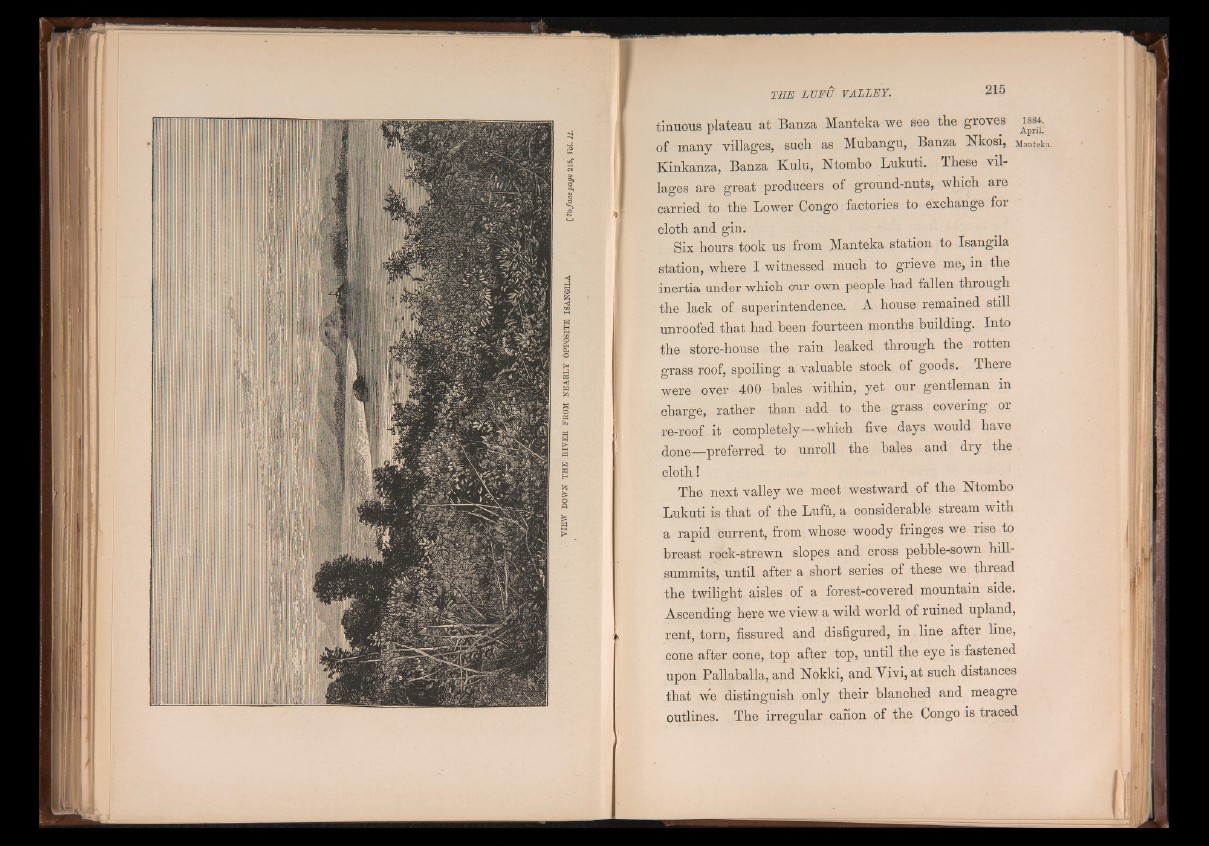
VIEW DOWH THE RIVER FROM NEARLY OPPOSITE ISANGILA
tinuous plateau at Banza Manteka we see the groves
of many villages, sucli as Mubangu, Banza Nkosi,
Kinkanza, Banza Kulu, Ntornbo Lukuti. These villages
are great producers oi ground-nuts, which are
Manteka.
carried to the Lower Congo factories to exchange for
cloth and gin.
Six hours took us from Manteka station to Isangila
station, where I witnessed much to grieve me, in the
inertia under which our own people had fallen through
the lack of superintendence. A house remained still
unroofed that had been fourteen months building. Into
the store-house the rain leaked through the rotten
grass roof, spoiling a valuable stock of goods. There
were over 400 bales within, yet our gentleman in
charge, rather than add to the grass covering or
re-roof it completely—which five days would have
¿one—preferred to unroll the bales and dry the
cloth!
The next valley we meet westward of the Ntornbo
Lukuti is that of the Lufu, a considerable stream with
a rapid current, from , whose woody fringes we rise to
breast rock-strewn slopes and cross pebble-so.wn hill-
summits, until after a short series of these we thread
the twilight aisles of a forest-covered mountain side.
Ascending here we view a wild world of ruined upland,
rent, torn, fissured and disfigured, in line after line,
cone after cone, top after top, until the eye is fastened
upon Pallaballa, and Nokki, and Vivi, at such distances
that we distinguish only their blanched and meagre
outlines. The irregular canon of the Congo is traced